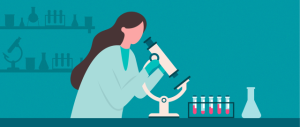Genes and their mutations
A gene is a code present in each cell of your body and it controls the life of that cell. Each cell in the human body contains about 25,000 to 35,000 genes. Genes carry the information that determine your “traits”, which are characteristics that you inherit from your parents. Genes determine who you are and what you look like, for instance, your physical characteristics (phenotype).
Genes are contained in chromosomes, which are located inside the cell nucleus.
Each of our 46 chromosomes is made up of deoxyribonucleic acid (DNA), tightly coiled many times around proteins (called histones) which support its structure. The DNA contains the genetic information needed for the biosynthesis of RNA (RiboNucleic Acid) and proteins, molecules which are essential for the development and correct functioning of most living organisms. Each DNA molecule is a long double helix that resembles a spiral staircase containing millions of steps. Each step of the staircase consists of pairs of four types of molecules called bases (nucleotides). Each extremely long DNA molecule is coiled up inside one of the chromosomes. Every normal human cell contains 23 pairs of chromosomes, for a total number of 46 chromosomes. A chromosome contains from hundreds to thousands of genes. Genes vary in size, depending on the sizes of the proteins which they encode. Genes can change and this change is called a mutation. Mutations may involve small or large segments of DNA.
Most mutations do not affect or produce detectable changes in the observable characteristics of an individual. Inherited mutations are those which may be passed on to offspring: sons and daughters. Mutations can be inherited only when they affect the reproductive cells (sperms or eggs). Mutations that do not affect reproductive cells, affect the descendants of the mutated cell (and may for example, become a cancer) but these are not passed on to the offspring. Some mutations can also disrupt normal gene activity and cause diseases, like cancer. Most harmful mutations are rare.




